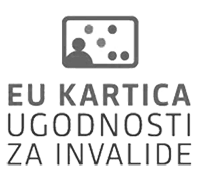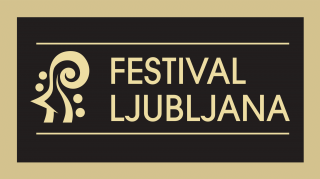View video
View video
View video
Important information
Thursday, 21 April
At 9.15 am
Welcome speeches:
Veronika Brvar (President of the Glasbena matica Ljubljana)
Jernej Weiss (Head of the Musicological Symposium)
At 9.30–10.00 am
Keynote lecture:
Friedhelm Brusniak (Würzburg): Die Gründung des Deutschen Sängerbundes 1862 und das „Österreich- Problem“: Anmerkungen zu neuen Tendenzen in der historischen Chorforschung / The foundation of the German Association of Choral Singers in 1862 and the “Austrian problem”: Notes on new trends in the study of the history of choral singing
At 10.00–10.50 am
Chairman: Wolfgang Marx
Helmut Loos (Leipzig): Zur kulturellen und politischen Bedeutung der deutschen Männergesangvereine / The cultural and political significance of German men’s choral singing association
Hartmut Krones (Vienna): “Linke” und “rechte” Amateurchöre im Wien des 19. Jahrhunderts und ihre politischen Zielsetzungen / “Left-wing” and “right-wing” amateur choirs in 19th century Vienna and their political goal
At 11.00–11.50 am
Chairman: Hartmut Krones
Luba Kijanovska – Teresa Mazepa (Lviv): Funktionen der Musikvereine in einem multinationalen soziokulturellen Umfeld (am Beispiel des Galicischen Musikvereines) / The roles of musical associations in a multinational sociocultural environment (using the example of the Galician Music Society)
Viktor Velek (Ostrava): Matej Hubad in the context of the musical life of Slavic societies in Vienna
At 2.00–2.50 pm
Chairman: Helmut Loos
Niall O’Loughlin (Loughborough): The Philharmonic Society of London and its Nineteenth-Century Contribution to the Rehabilitation of British Composers
Wolfgang Marx (Dublin): Musical Culture and Research in Nineteenth-Century Ireland
At 3.00–3.50 pm
Chairman: Viktor Velek
Michal Ščepán (Bratislava): The role of music associations in musical life of Bratislava during the 19th century
Danute Petrauskaite (Vilnius): Pomen litovskih društev za razvoj nacionalne glasbene kulture in državnosti / The significance of Lithuanian societies for the development of national musical culture and statehood
At 4.00–4.50 pm
Chairman: Niall O‘Loughlin
Lana Šehović (Sarajevo): Vienna choral societies’ visits to Sarajevo – an opportunity for redefining concert activities by local societies of the end of the 19th century?
Nada Bezić (Zagreb): Similarities and differences: comparison of the Ljubljana Glasbena Matica and music societies in Zagreb (Hrvatski Glazbeni Zavod and Hrvatsko Pjevačko Društvo “Kolo”) in the period up to WWI
Friday, 22 April
At 9.00–9.30 am
Keynote lecture:
Katja Škrubej (Ljubljana): The foundation of a free state is a free association? Continuity and change after 1849
At 9.30–10.45 am
Chairman: Luisa Antoni
Maruša Zupančič (Ljubljana): The Role and Contribution of Foreign Musicians to the Music Societie in the Slovene Lands until the Dissolution of Austria-Hungary
Jernej Weiss (Ljubljana – Maribor): The contribution made by Czech musicians to reviving the musical legacy of Iacobus Handl Gallus in Slovene lands
Matjaž Barbo (Ljubljana): Alfred Khom, a diligent choirmaster, skilful composer and experienced musician, torn between choral and philharmonic endeavours
At 11.00–11.50 am
Chairman: Matjaž Barbo
Luisa Antoni (Trieste): Activity of Slovenian, Italian and Austrian-German societies in Trieste in the 19th century
Darja Koter (Ljubljana): The social-political role and cultural-educational mission of Ptuj music societies in the second half of the 19th century, and their influence on the Ptuj Glasbena Matica
At 2.00–2.50 pm
Chairman: Darja Koter
Vlasta Stavbar (Maribor): The age of reading society patriotism: the Slavonic reading society in Maribor
Manja Flisar Šauperl (Maribor): The Glasbena matica Maribor (1919–1948)
At 3.00–4.15 pm
Chairman: Jernej Weiss
Špela Lah (Ljubljana): The Glasbena matica choir and the golden age of Slovene choral singing
Katarina Zadnik (Ljubljana): Harmony, counterpoint and musical form from the founding of Glasbena Matica to the Academy of Music
Mojca Kovačič (Ljubljana):The past sonority of Glasbena Matica: An ethnomusicological research of gramophone recordings


